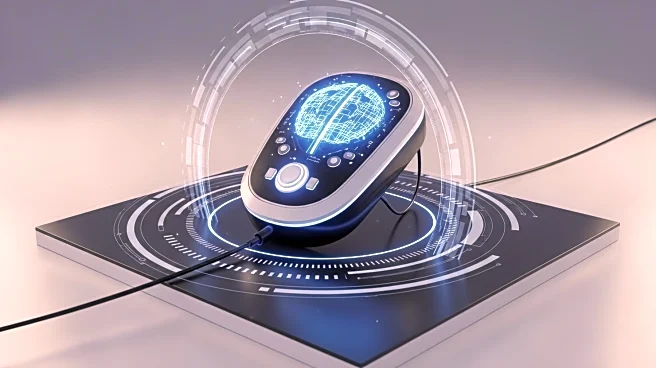What is the story about?
What's Happening?
Tetiana Aleksandrova, CEO and co-founder of Subsense, is leading the development of the world's first non-surgical, nanoparticle-based brain-computer interface (BCI). Subsense aims to create scalable and accessible BCIs that can decode and influence neural activity safely. In less than two years, Aleksandrova has raised $20 million in seed funding and established collaborations with ETH Zurich and UC Santa Cruz. Her leadership has positioned Subsense as a key player in non-surgical neurotechnology, with a focus on responsible and inclusive applications.
Why It's Important?
The advancement of non-surgical BCIs by Subsense could significantly impact healthcare and human-machine interaction. This technology has the potential to empower individuals with neurological disorders, offering new ways to interact with their environment. The successful development and deployment of such interfaces could lead to breakthroughs in medical treatments and enhance human capabilities. Subsense's work is part of a broader trend towards more accessible and ethical neurotechnology, which could reshape industries and improve quality of life for many.
What's Next?
Subsense is expected to continue its collaborations with leading scientific institutions and pursue further funding to advance its technology. The company will likely focus on achieving preclinical validation milestones and expanding its team to support its ambitious goals. As the technology progresses, regulatory strategies and investor relationships will play crucial roles in its commercialization. The broader neurotechnology community may watch closely for Subsense's developments, which could influence future research and applications in the field.
Beyond the Headlines
Subsense's work raises important ethical considerations regarding the use of neurotechnology. The company advocates for responsible applications that enhance life without compromising privacy or autonomy. As brain-machine interfaces become more prevalent, discussions around ethical use, data security, and inclusivity will become increasingly important. Subsense's approach may set a precedent for how neurotechnology companies address these challenges.














